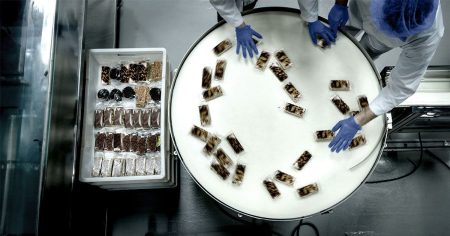A poor diet can increase the risk of various health conditions, including obesity, heart disease, type 2 diabetes, and certain cancers. While high intakes of sodium, saturated fats, and sugars are associated with chronic conditions like heart disease and diabetes, the link between diet and cancer is less clear. Although many foods are said to be associated with increased or decreased cancer risk, no studies have conclusively shown that any dietary component directly causes or protects against cancer. However, a new study from the National University of Singapore published in Cell has discovered a mechanism that may help explain why poor diet increases cancer risk.
The study found that methylglyoxal, a by-product of the metabolism of glucose, proteins, and lipids, may inhibit genes that protect against cancer. This effect can be particularly detrimental for individuals who have inherited a mutated gene, such as BRCA2, which increases the risk of breast and ovarian cancers. Methylglyoxal was found to temporarily disable tumor suppression by BRCA2, increasing the likelihood of cancer development. Additionally, methylglyoxal damaged DNA in cells with the mutated form of the BRCA2 gene. This finding suggests that repeated exposure to methylglyoxal can lead to DNA damage, which is an early warning sign of cancer development.
High levels of methylglyoxal are common in people with prediabetes and diabetes, as well as those who are obese or have poor dietary habits. Methylglyoxal can lead to the production of advanced glycation end-products (AGEs), which are linked to increased oxidative stress and inflammation, both of which are critical factors in cancer development. While the study was conducted in cells and not patients, the results suggest that poor diet and elevated levels of methylglyoxal may increase cancer risk. The effects of methylglyoxal on cancer-preventing genes highlight the importance of following a balanced, plant-forward diet to reduce the risk of various diseases, including cancer.
The researchers caution that more research is needed to confirm the effects of methylglyoxal and its role in cancer risk. Further studies are required to determine if the effects observed in cell studies translate to more complex contexts within the human body. While the work provides insights into the relationship between diet, methylglyoxal, and cancer risk, it is premature to provide specific dietary recommendations based on these findings. However, the study underscores the importance of maintaining a healthy diet to reduce the production of methylglyoxal and maintain overall metabolic and microbiome health.
Following a Mediterranean diet, which is rich in whole and minimally processed foods, dietary fiber, and bioactive compounds, may help reduce methylglyoxal levels in the bloodstream. This dietary approach has been linked to lower methylglyoxal levels, contributing to kidney health in individuals with type 2 diabetes and coronary heart disease. Overall, the study sheds light on the potential impact of diet on cancer risk through the production of methylglyoxal. Further research is needed to fully understand the role of methylglyoxal in cancer development and the implications for dietary and lifestyle interventions to reduce cancer risk.















